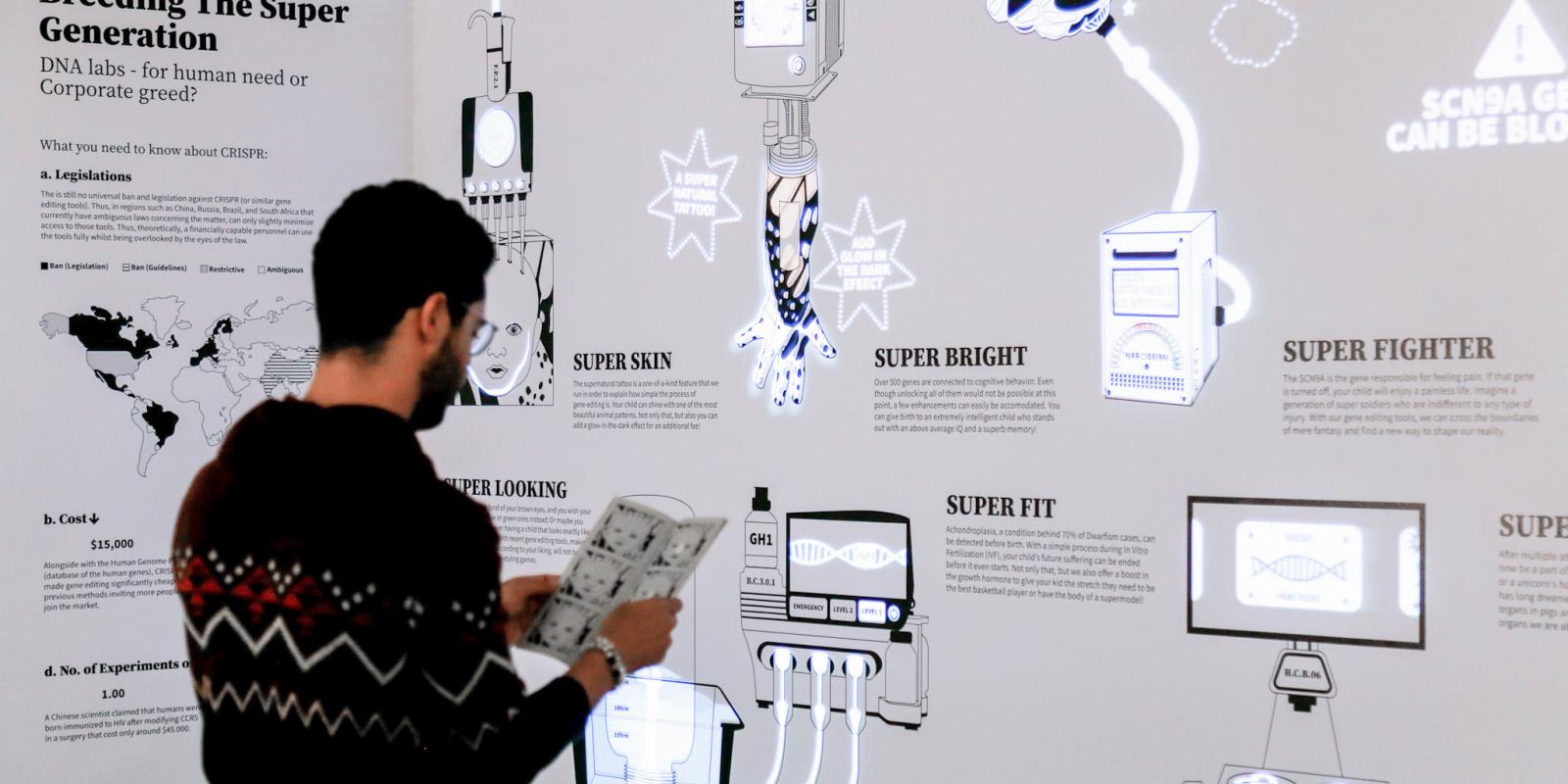
$1.3 Million HUSS Grant for the Future of Art at AUC
AUC’s School of Humanities and Social Sciences was recently awarded a grant agreement worth approximately $1.3M over two years from the United States Agency for International Development’s Office of American Schools and Hospitals Abroad (USAID/ASHA) to fund “The Interdisciplinary Future of Art Education at AUC.”
Through the grant, the school plans to bolster the Department of the Arts with present-day, state-of-the-art technological resources to lay the foundations for the development and scaling up of the department's five programs: theatre, music, film, visual arts and graphic design.
“This is a very important time in the history of HUSS because it gives us the needed support to be able to go forward to enhance liberal arts education,” said Zeinab Taha '78, '81, professor and interim dean of the School of Humanities and Social Sciences. “Having the department equipped both in terms of human resources and equipment will result in excellent programs and, consequently, up-to-date graduates ready to contribute to the market both locally and internationally.”
Taking the form of creative platforms, five initiatives are currently in the works: a new Media Lab, Music Technology Studio, Fashion Design Lab, upgraded Sharjah Art Gallery and renovated classrooms/studios. Given the diverse and versatile nature of arts education, the intent is to bridge the exchange of knowledge and practices among the programs through interdisciplinary methods and experimentation.
“This grant is a step toward interdisciplinary education, which I believe is the future of education,” said Haytham Nawar, associate professor and chair of the Department of the Arts. “The new interdisciplinary environment we are aiming for will help students develop the essential skills and understanding required in the diverse areas of the creative process. This approach will open the doors for future generations to reach a mutually collaborative and constructive understanding and achieve purposeful research.”
The specific goals of the Interdisciplinary Future of Art Education at AUC are twofold: to empower students with the knowledge and ability to explore expressive possibilities brought about by existing and emerging forms of technology, and to cultivate an intellectual framework to investigate, understand and navigate a world infused with media and communication technologies.
The technologies are posited not as an end in themselves, but as a means to address fundamental questions pertaining to the human condition, complex relationships between ourselves and our mediated environment, and what it means to be an active participant in a world increasingly informed by computation and automation.
“The Office of Sponsored Programs is thrilled to work alongside the Department of the Arts in this transformative initiative," said Dina Adly (MPA '17), associate provost, of sponsored programs. "Being in line with AUC’s Centennial Strategic Plan pillar of ‘innovation,’ the award engages in the active purposing of resources toward creative and versatile academic endeavors."
Adly added, "AUC’s learning platforms are integral to student growth, faculty development and the University's impact on the community at large by integrating novel spaces, equipment and technology and by instilling American best practices and values. OSP is proud that the School of Humanities and Social Sciences won this significant award that will help shape the future of arts education at AUC and contribute to equipping our graduates for the present and future market.”
Moreover, the department plans on introducing new undergraduate majors, including music technology and fashion design. “Several art disciplines are growing, and the demand is increasing in the MENA region. We hope to upgrade the existing material that we have to improve the current degrees, and we also aspire to introduce new ones to cater to this increasing demand,” added Nawar.
Taha highlights that despite its growing popularity, music technology, in particular, has no equivalent study in Egypt. In fact, only a few institutions offer a degree in that area in the Middle East. “This is an opportunity to graduate students at an unprecedented level in the Middle East and put AUC, especially with its liberal arts focus, as a leading institution on the map of qualified students to come study in Egypt.”
“With USAID/ASHA’s support, AUC will not only continue to nurture interdisciplinary learning strategies across programs under the Department of the Arts but will also [bulid] synergies and fresh collaborations between the Department of the Arts and other departments at AUC,” noted Adly.
As such, the interactive technology advancements and new program additions are set to take the Department of the Arts to new frontiers, meanwhile magnifying AUC’s liberal arts education and emphasizing inclusive, cross-disciplinary approaches to learning to equip students to excel in evolving, competitive markets.
